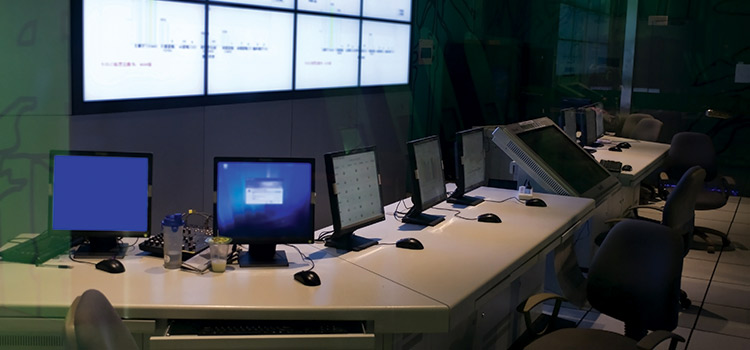
A correctly designed distributed control system (DCS) is essential for safe and efficient process plant operations. PTS provides qualified and experienced instrument and control system engineers and technicians that will review P&I diagrams in detail to determine if the DCS control system will meet the needs of your operations.
Particular attention is to be paid to DCS feed-forward, feedback, and cascade control systems. Although final tuning of DCS controllers can only be done with the plant in operation, the initial setting of the controller tuning coefficients is essential for a smooth star-tup of the process. PTS engineers and technicians utilize results from dynamic model simulations, process flow-sheets, and equipment sizes to estimate the impact of dead-time and equipment holdup times on DCS, tuning coefficients for the various processing units throughout the process.
The process variables sent to the distributed control system include pressure, temperature, level, and flow sensors. PTS’ qualified and experienced instrument and control system engineers and technicians can provide valuable insights and consultation regarding the reliability and accuracy of a variety of sensors. The advice from our specialists may help avoid installation of field instruments of questionable reliability and accuracy during the installation phase of a project and possibly avoid countless hours of poor operation, upsets and downtime after the process is commissioned.
Our experienced instrument technicians pre-commission distributed controls and provide a preliminary set of parameters that will provide a smooth and orderly start-up of process units utilizing accurate piping and instrumentation diagrams.
Essential DCS elements in most modern process control system designs include on-line and in-line process analyzers. An on-line analyzer is one that processes a sample extracted from the process and thus requires an automatic sampling system to extract material from the process for analysis such as a gas chromatograph (GC). Another method is the use of an in-line process analyzer with the sensor inserted directly into the process material. A pH probe is an example of an in-line analyzer. Another type of in-line analyzer might require a side stream that causes process material to flow through a small bypass line.
It’s essential for the process design criteria which is specified by the distributed control system engineers be strictly followed during the procurement process. There is a strong incentive for the equipment purchasers to buy from the lowest qualified bidder, but one who has not necessarily met all of the design criteria. This can be a particular problem with process control valves. Our DCS quality assurance technicians insure that control system equipment being purchased meets all of the design specifications.
Finally, even with a good design, and equipment that meets all design specifications, there is still one area of activity where problems can develop, which is during the installation phase. Experienced and professional PTS quality control technicians can monitor the installation process from start to finish ensuring that the control system installation follows industrial standards and meets all design specifications.
A well designed DCS, implemented with care and skill by PTS specialists can provide years of safe, efficient, and effective control of your process.
